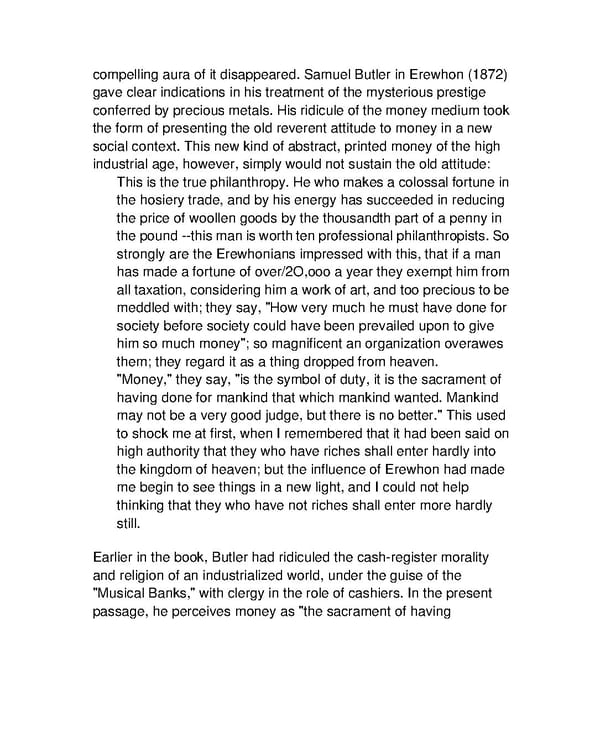compelling aura of it disappeared. Samuel Butler in Erewhon (1872) gave clear indications in his treatment of the mysterious prestige conferred by precious metals. His ridicule of the money medium took the form of presenting the old reverent attitude to money in a new social context. This new kind of abstract, printed money of the high industrial age, however, simply would not sustain the old attitude: This is the true philanthropy. He who makes a colossal fortune in the hosiery trade, and by his energy has succeeded in reducing the price of woollen goods by the thousandth part of a penny in the pound --this man is worth ten professional philanthropists. So strongly are the Erewhonians impressed with this, that if a man has made a fortune of over/2O,ooo a year they exempt him from all taxation, considering him a work of art, and too precious to be meddled with; they say, "How very much he must have done for society before society could have been prevailed upon to give him so much money"; so magnificent an organization overawes them; they regard it as a thing dropped from heaven. "Money," they say, "is the symbol of duty, it is the sacrament of having done for mankind that which mankind wanted. Mankind may not be a very good judge, but there is no better." This used to shock me at first, when I remembered that it had been said on high authority that they who have riches shall enter hardly into the kingdom of heaven; but the influence of Erewhon had made me begin to see things in a new light, and I could not help thinking that they who have not riches shall enter more hardly still. Earlier in the book, Butler had ridiculed the cash-register morality and religion of an industrialized world, under the guise of the "Musical Banks," with clergy in the role of cashiers. In the present passage, he perceives money as "the sacrament of having
 Understanding Media by Marshall McLuhan Page 150 Page 152
Understanding Media by Marshall McLuhan Page 150 Page 152